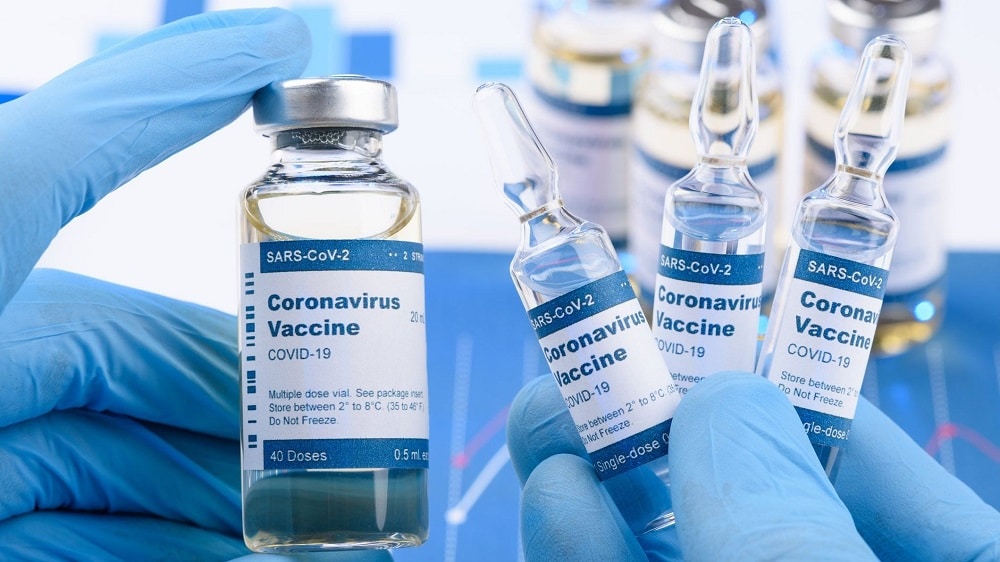Last week, Pfizer, the US-based pharmaceutical company, and its partner BioNTech, the German vaccine-maker, announced that their Coronavirus vaccine offers 90% protection against the Coronavirus.
The announcement came on the back of large-scale phase-III clinical trials which involved 43,500 volunteers in six countries.
ALSO READ
Students Likely to Get A One-Month Winter Break Soon: PM Imran
Soon after the announcement, Dr. Atta-ur-Rahman, an eminent scientist and the Chairman of the Prime Minister’s Taskforce on Science and Technology, had said that Pfizer’s coronavirus vaccine is not suitable for Pakistan, suggesting that the Coronavirus vaccine developed by CanSino Biologics will be more suitable for Pakistan.
CanSino Biologics is a Chinese vaccine-maker that is holding phase-III clinical trials of its COVID-19 vaccine in 6 countries including Pakistan. An estimated 40,000 volunteers are taking part in these trials, of which 8,000 to 10,000 are from Pakistan.
While the preliminary results of CanSino’s late-stage clinical trials are expected in January 2021, here’s a look at how the Chinese vaccine currently under trials in Pakistan differs from Pfizer’s.
CanSino’s vaccine
Named Ad5-nCoV, the CanSino Biologics vaccine is built upon an adenovirus-based viral vector vaccine technology platform. The vaccine is a genetically engineered vaccine with the replication-defective adenovirus type 5 as the vector to express Coronavirus’ spike protein, a protein that helps the virus to breach into the immune system.
ALSO READ
Man Who Sold His Kidney for an iPhone is Now on Dialysis
How does it work?
Once Ad5-nCoV is administered, the adenovirus-based vector recreates a natural pathogenic invasion in the immune system by sending genetic material to the cells to produce spike proteins, triggering the immune system to generate a response and develop antibodies against the virus. The immune system then creates memory cells, B-lymphocytes and T-lymphocytes, against the virus. Each time the virus tries to invade the immune system in the future, the memory cells will jump into action against it.
Effectiveness
Although the results of phase-III clinical trials are awaited, phase-II results confirmed that Ad5-nCoV had produced antibody responses in 95% of participants of a high dose group and 91% of participants of a low dose group at the end of 28 days.
Side effects
According to CanSino’s Chief Scientific Officer, Dr. Zhu Tao, no severe or adverse side effects of Ad5-nCoV have been reported so far. However, mild reactions of the vaccine that have been observed during the clinical trials include fever, fatigue, and a sore injection site.
Pfizer’s vaccine
Named BNT162b2, the vaccine co-developed by Pfizer and BioNtech is built upon the messenger RNA-based technology platform.
ALSO READ
US Military is Buying Your Location Data From Islamic Apps For “Counterterrorism”
How does it work?
Once introduced into the body, the mRNA vaccine instructs the cells to produce synthetic spike proteins. The synthetic spike proteins trick our immune system into thinking that a virus is present in the body. At the same time, the vaccine also trains the immune system to produce antibodies against a real pathogen attack from the Coronavirus. Upon getting trained against the Coronavirus, the immune system gets stimulated and starts making antibodies in a defensive response to fight the virus every time it tries to breach the immune system.
Effectiveness
An effective immune response was generated in 7 days after two doses and in 28 days after a single dose of the BNT162b2 vaccine among the participants of phase-III clinical trials.
According to a joint statement issued by Pfizer and BioNTech, the BNT162b2 vaccine offers 90% protection against viral infection.
Side effects
According to Pfizer’s Chief Scientific Officer, Dr. Mikael Dolsten, no severe or adverse side effects of BNT162b2 were reported during its clinical trials. However, mild reactions of the vaccine that were observed during the clinical trials included headache, chills, fatigue, and muscles and joint pain.


























I was waiting to read why the Pfizer one would be “unsuitable” and why the other one would be suitable.